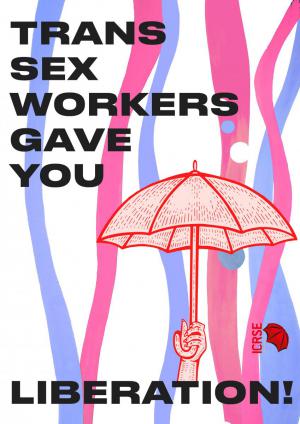On this day, our organisations aim to draw specific attention to the violence and discrimination faced by trans sex workers in Europe and Central Asia. Just like in the rest of the world, trans sex workers in our region are experiencing extreme violence that is fuelled by stigma and lack of protective laws and human rights. Sex workers are subject to discrimination and violence from members of the public, health care professionals and the members of their own families on a daily basis.
On this day, our organisations aim to draw specific attention to the violence and discrimination faced by trans sex workers in Europe and Central Asia. Just like in the rest of the world, trans sex workers in our region are experiencing extreme violence that is fuelled by stigma and lack of protective laws and human rights. Sex workers are subject to discrimination and violence from members of the public, health care professionals and the members of their own families on a daily basis. Structural transphobia and criminalisation of sex work create an environment of impunity for potential aggressors who know that trans sex workers are unable to report violence to the authorities. In many countries, authorities such as police and immigration officials are often the principal perpetrators of this violence. (Undocumented) migrant trans sex workers in particular are further criminalised and deported.
According to the Trans Murder Monitoring (TMM)project, 331 trans people were murdered in 2019 and at least 61% of the victims were sex workers. In Europe, 65% were migrant. In countries that have adopted the Swedish model of criminalisation of sex work, trans sex workers report an increase in violence and vulnerability.
Following the implementation of the law in Ireland, sex workers, in particular trans sex workers, faced a dramatic increasein violence.
In France, reports point to an increase in precarity and violence and declining lack of trust in authorities. The murder of Vanessa Camposhighlighted violence against migrant trans sex workers who continue to face brutality and are ignored by politicians.
In Sweden, trans sex workers are not able to report violence to the police and migrant sex workers often fear arrest and deportation under the anti-trafficking and anti-sex work laws. Many migrant trans sex workers in detention centres are treated badly and refused access to hormones and pain medicines. Recently a sex worker was killed, more information will be shared by the local organisation Fuckforbundet.
In Spain, where criminalisation of clients is supported by the current government,Paloma Barretos, migrant trans sex worker was murdered in September.
In Eastern Europe and Central Asia, violence against trans sex workers is often less visible and under-reported. During the ILGA Europe Conference (Prague, October 2019), trans sex workers from Central Asia coordinated a workshop to bring some attention to their situation. In a letter jointly drafted during the workshop, they report high levels of violence, discrimination, blackmail and threats.
In Tajikistan, suicide prevalence amongst trans sex workers is high and sex workers who migrate to nearby countries (often to Russia) in order to escape poverty and violence are being deported back, facing further harassment in the process. Sex workers are punished with fines and arrests.
The situation in Kyrgyzstan and Uzbekistan is no different. Trans sex workers can’t access stigma-free health services and repeatedly fined, arrested and forced to migrate.
You can read the full letter here in English and Russian.
Violence against trans sex workers must stop. LGBT and sex workers’ organisations must do more to include trans sex workers and collectively combat transphobia and criminalisation of migration and sex work.The intersection of sex work and other marginalised communities must be recognised and the partnership between these communities should be strengthened.
